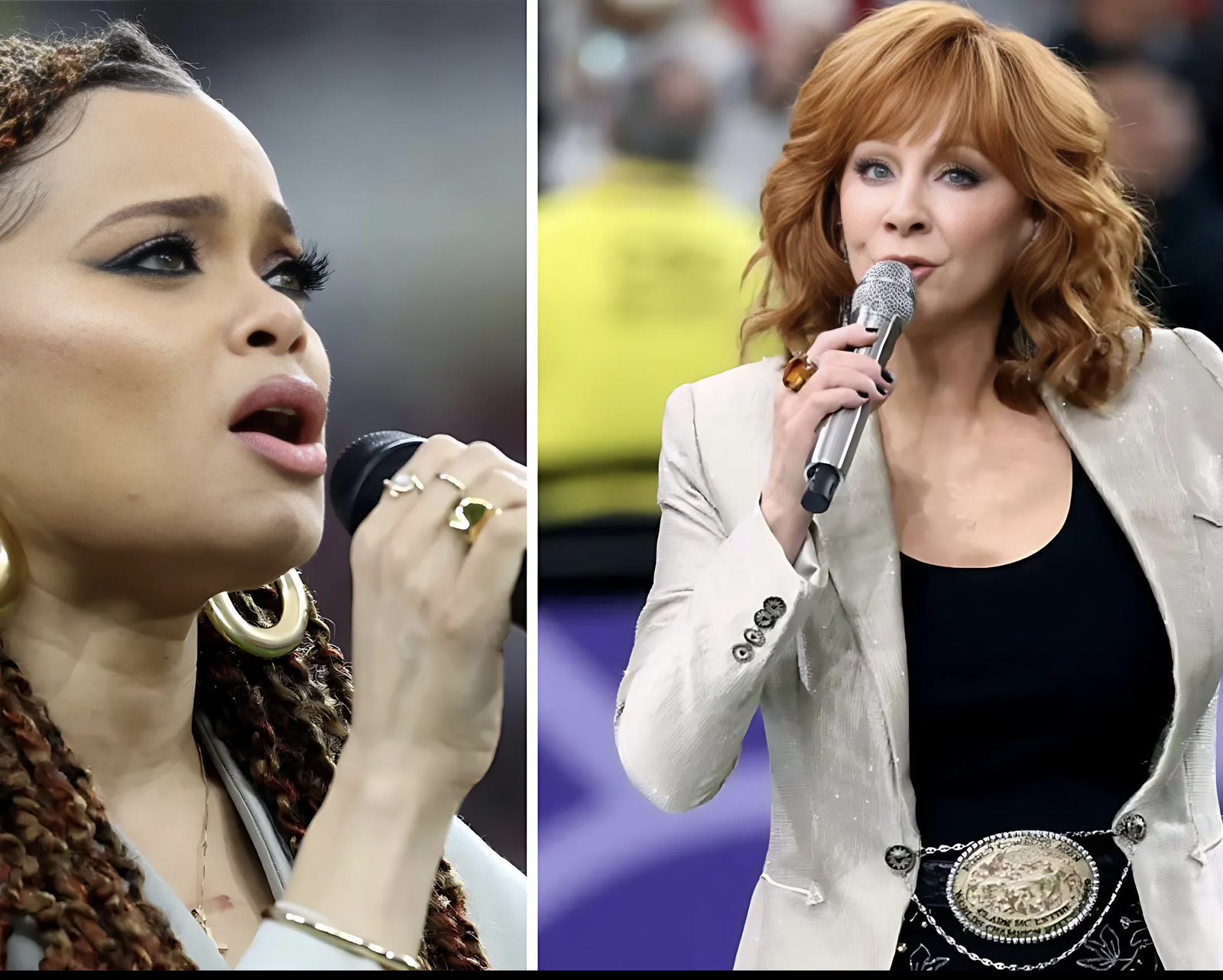In an event that encapsulated the vast spectrum of America’s cultural and societal dynamics, Super Bowl LVIII presented a striking contrast in public reception to two impactful performances. The pre-game ceremony featured the legendary Reba McEntire, whose rendition of the National Anthem resonated throughout the stadium, uniting fans in a shared moment of patriotic pride.
Shortly thereafter, Andra Day took the stage to perform “Lift Every Voice and Sing,” commonly known as the Black National Anthem, eliciting a range of reactions from cheers to discernible boos. This divergence in reception sheds light on the current state of American discourse, emphasizing the intricacies of national identity, race, and the role of sports as a unifying force.
Reba McEntire, with her illustrious career and widespread appeal, embodies a symbol of unity and nostalgia for many Americans. Her rendition of the National Anthem was met with overwhelming acclaim, underscoring her status as a beloved icon in music and culture. McEntire’s performance exuded power, reverence, and a sense of collective pride, echoing the traditional values associated with the Super Bowl and American heritage.
In contrast, Andra Day’s performance, while equally moving and beautifully executed, elicited a complex array of emotions. “Lift Every Voice and Sing” carries profound significance in the African American experience, symbolizing the quest for freedom and equality. Its inclusion in the Super Bowl ceremonies aimed at fostering inclusivity and acknowledging America’s diverse heritage. However, the mixed reactions underscore the underlying tensions within the nation’s celebrated diversity.
The enthusiastic reception for McEntire and the mixed response to Day’s performance reflect a broader societal struggle with issues of race, identity, and unity. While many view the inclusion of “Lift Every Voice and Sing” as a step towards recognizing the contributions and struggles of African Americans, others perceive it as divisive, preferring the traditional National Anthem as the sole unifying song for such occasions.
This dichotomy prompts important discussions about the role of major sporting events in addressing social issues or sidestepping them altogether. The Super Bowl, watched by millions worldwide, serves as a cultural touchstone that both reflects and influences American values and identity. The reactions to McEntire and Day’s performances highlight the challenge of navigating a path that honors tradition while embracing a broader, more inclusive definition of patriotism.
The incident at Super Bowl LVIII is part of an ongoing conversation about the intersection of sports, society, and politics. From Colin Kaepernick’s kneeling protest to the varying responses to national anthems, sports events have become arenas for public debates on justice, patriotism, and national identity.
These moments of discord and harmony at sporting events underscore a crucial aspect of democracy: the freedom to express diverse viewpoints and the continual negotiation of shared values. They also underscore sports’ potential to elevate discussions that might otherwise be marginalized or overlooked in other contexts.
The contrasting receptions to Reba McEntire and Andra Day at Super Bowl LVIII offer a snapshot of America at a pivotal juncture. They prompt reflection on how to navigate the complexities of a society striving for unity while grappling with its divisions. The challenge lies in finding common ground in a landscape marked by diverse histories, experiences, and aspirations.
Moving forward, engaging in open, respectful dialogues that acknowledge and celebrate differences will be crucial. Sports, with its unique ability to bring together individuals from diverse backgrounds for a common purpose, provides a platform for these discussions. It can serve as a catalyst for bridging divides, fostering understanding, and promoting a patriotism that embraces all facets of the American experience.
The Super Bowl, with its vast audience and cultural significance, possesses the potential to be more than just a game. It can be a moment of collective introspection, celebration, and, importantly, a catalyst for progress towards a more inclusive and unified society. As fans of the game and members of the broader community, our response to these moments can shape the trajectory of the conversation and, ultimately, the fabric of the nation.
In essence, the performances of Reba McEntire and Andra Day at Super Bowl LVIII serve as a poignant reminder of the power of music and sports to evoke emotion, stimulate thought, and inspire action. They offer a glimpse into America’s ongoing journey towards a more perfect union, where every voice is heard, and every anthem serves as a hymn of unity.


